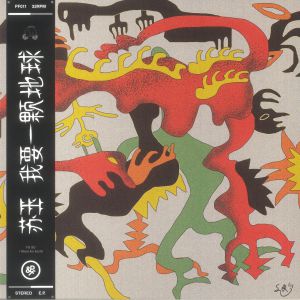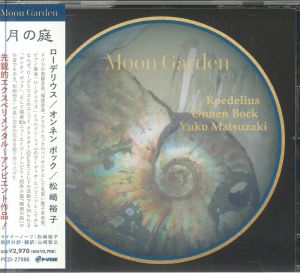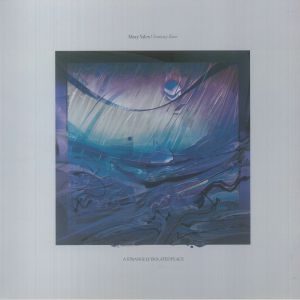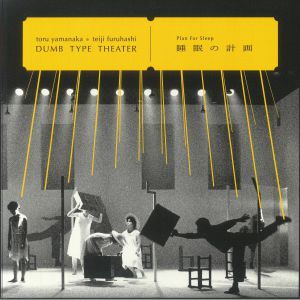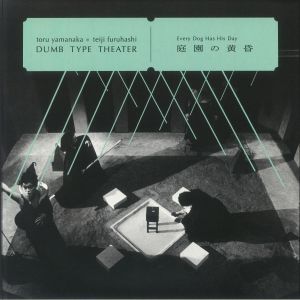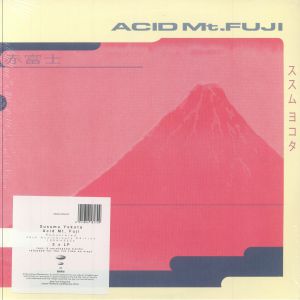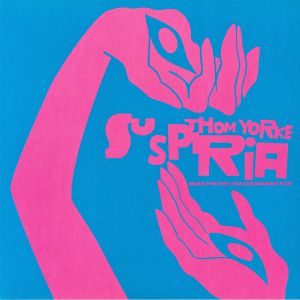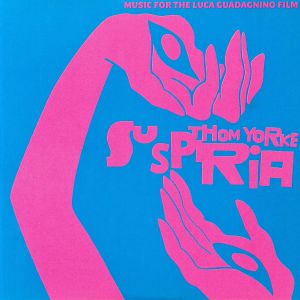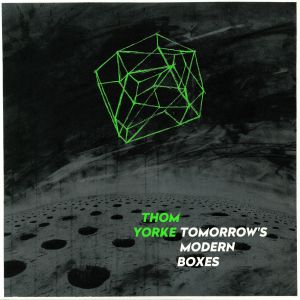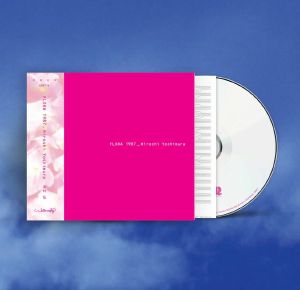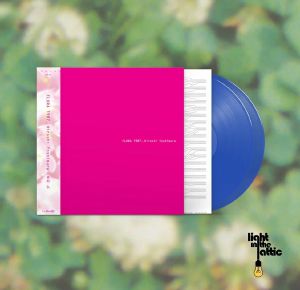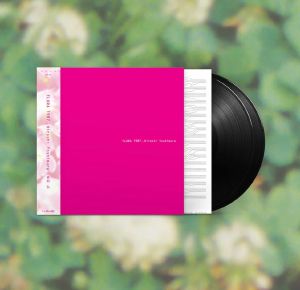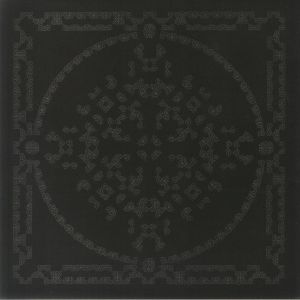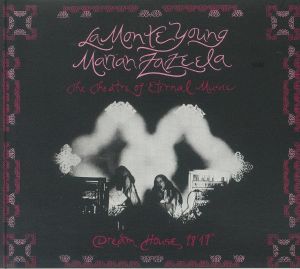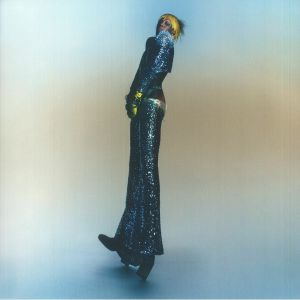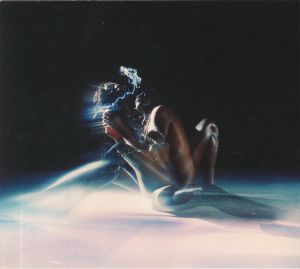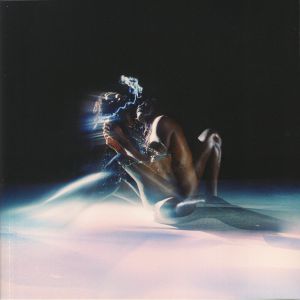Back catalogue: All genres
Juno's full catalogue of All genres
シングル
I Want An Earth (heavyweight vinyl 12" with obi-strip)
Cat: PF 011. Rel: 25 Jul 23
Experimental/Electronic
Review: Yu Su's eclectic, organic sound is one that has been perfected over every consecutive release, and reaches its yetmost peak with 'I Want An Earth'. As if to make a defiant cry for a habitable planet, this one contains four tracks inspired by the artist's time spent in the deserts of Ojai, California, and the coastal areas of British Columbia, presenting a deeply pad-driven, warm and modular sound to match. A dazzling work of odd-timed cosmickery and varied sonics.
… Read more in stock $19.16
Review: If you enjoyed Yu Su's brilliant EP on Second Circle earlier in the year - and, let's face it, who didn't? - there's a rather high chance that you'll enjoy her first outing on Ninja Tune offshoot Technicolour. "Watermelon Woman" is a superb chunk of bass-heavy house music positive - an inventive and hugely enjoyable fusion of unfussy drum machine rhythms, sampled tribal drums, toasty bass, dubbed-out effects, stargazing electronics, fluttering flutes and jazzy motifs that have just the right amount of breezy Latin flavour. The original version comes backed with a hazy and laidback Dub rework and a boisterous, off-kilter remix by Francis Inferno Orchestra that layers rubbery sounds and heady vocal samples above a skewed tribal house beat.
… Read more in stock $10.43
アルバム
Review: In a collaboration for the ages, we hear German kosmische musician Hans-Joachim Roedelius (Cluster, Harmonia) team up with Japanese flutist Yuko Matsuzaki and Berlin Philharmonic analog musician sound engineer Onnen Bock for a nacreous improv blast. Spanning soft, pearly electronica and neoclassical, Moon Garden comprises five works, incorporating techniques and fragments of songs already released. A mythical aura unfurls through synth koto and organic harmonics; 'In The Forest Of Syrinx' establishes a singing bowled, new age aesthetic, segueing into the purely vocal threnody 'Sapphire Jellyfish'. Bridging electronic washes, piano and female vocals, this is a borderless soundscape of exciting proportions.
… Read more in stock $23.11
Fantasy Zone (translucent purple smokey vinyl LP + insert)
Cat: ASIPV 042. Rel: 01 Sep 23
Ambient/Drone
Review: German musician Mary Yalex makes her debuts on A Strangely Isolated Place with a new album that offers up her vision of the future via a suite of lush ambient tunes. Yalex draws upon her day-to-day surroundings for inspiration and pairs soft melodies with vivid instrumentation. As the record unfolds, things get ever more future facing with darker moods and haunting vibes that tend toward dystopia. Her pristine synth work shines throughout the album and it all adds up to a thought-provoking listen as well las a notable label debut for Yalex.
… Read more in stock $27.91
Plan For Sleep (remastered) (LP + insert + MP3 download code)
Cat: CONATALA 006. Rel: 03 Dec 24
Experimental/Electronic
Review: Dumb Type Theater have been at the forefront of Japan's performance art landscape since 1984, although the years between then and now have seen some significant changes - culturally and in terms of the group. The death of Teiji Furuhashi, one of the central members, is just one example. A pivotal player in performances, he was often tasked with translating the instrumentation and arrangements of musician Toru Yamanaka into on-stage directions. Removed from that context, Yamanaka and Furuhashi's sounds still work incredibly well. There are aspects of Plan For Sleep that evoke the US avant garde of the time, perhaps reiterating the fact that the late-20th Century saw a closing of distances and a shared vision of where the future was heading among broad communities. Sound art, in the most musical and listenable sense.
… Read more in stock $29.87
Every Dog Has His Day (remastered) (LP + insert + MP3 download code)
Cat: CONATALA 007. Rel: 03 Dec 24
Experimental/Electronic
Review: It's not hard to see just how ahead of their time Dumb Type were. And still are. Founded in Kyoto, Japan, in 1984, the artist collective looked to interpret and portray the changes they could see beginning to happen around them in society - specifically the start of the (information) technology age. Presenting work that took a dark and cynical view of the increasing importance and prevalence of equipment and digital in the every day, they do this though art exhibitions, performances and publications. Audiovisual installations have always been particularly prominent, and Every Dog Has His Day - one of two Dumb Theater albums previously only available on tape, now issued on vinyl for the first time - makes it clear music was never an afterthought. Credited to Toru Yamanaka, who wrote much of their heard work, and the late Teiji Furuhashi, who translated that onto stage, it's an avant garde essential.
… Read more in stock $25.92
Review: Re-rendered in a stunning full-length form, the groundbreaking soundtrack to the 1988 anime film Akira is here remixed in full by individual members of Geinoh Yamashirogumi, the elusive Japanese music collective behind the original Akira OST. Founded in 1974 by musician and agricultural scientist Tsutomu Ohashi, Geinoh Yamashirogumi still to this day adhere to a loose ecology, comprising hundreds of people with different occupations. Recreating folk music along modern dance musical and electronic lines - terraformed folktronica, if you will - the original Akira soundtrack was innovative, drawing on such Japanese folk musics as gamelan and noh while merging them into. Spawning many later remixes across electronica and dance music, this fresh remix record is fully overseen by director Katsuhiro Otomo and tracks larger-than-life remixes from Makoto Kubota, Kuniaki Haishima and Yasuharu Konishi, ragtag but chosen members of Geinoh Yamashirogumi.
… Read more in stock $83.41
The English Patient (Soundtrack) (Deluxe Edition) (gatefold 'saharan sun' translucent orange vinyl 2xLP)
Cat: 725579 1. Rel: 26 Mar 25
Soundtracks
Review: The music from Michael Ondaatje's Booker Prize and 12-Oscar-winning film encompasses the original score by Gabriel Yared with the haunting vocals of Marta Sebestyen and Fred Astaire. It is a story which has successfully made its mark on every medium that counts a - a classic to beat all classics. It's a cathartic journey that explores identity, fidelity, and fate amid the chaos of World War II. Shot against the majestic backdrop of the Northern Sahara and Italy, Yared's score blends Hungarian folk tunes, baroque themes, and romantic orchestration and mirrors the emotion of the film's characters without relying on visuals. Period tracks by Fred Astaire, Ella Fitzgerald and Benny Goodman complement the emotional depth of the story.
… Read more in stock $41.15
Review: Yetsuby is a solo project of South Korean artist Yejin Jang and a prolific one at that with six albums, seven EPs, and numerous singles to her name since 2019. Her recent album My Star, My Planet Earth won "Best Electronic Album of 2023" at the Korean Music Awards and now the NTS host follows up with a debut on Seb Wilblood's All My Thoughts label, which is a heartfelt mini album that explores deep emotions with real sonic alchemy. The six tracks range from the mesmerising opener 'Who Swallowed the Chimes at the Random Place' to the soothing 'The Sublime Embrace - Losing Our Way Is Not Wrong'. Both blend intricate rhythms with lush vocals and elegant brass to create celestial, immersive sound worlds.
… Read more in stock $19.72
Evangelic Girl Is A Gun ('iris of bloodlust' translucent red marbled vinyl LP + poster (indie exclusive))
Cat: ZEN 315E. Rel: 29 May 25
Experimental/Electronic
Review: Yeule (Nat Cmiel) is something of a sonic scrapyard varmint, scouring the lost wastes for augmentable audio parts perhaps useable in their madcap experiments. An avant-garde spin doctor of ash-faced, death-ray-desert-bomb glitch-pop, they've kept their place at the knife-edge of innovation, blending genres and non-genres at the violent vanguard where sounds remain in constant, slipped flux. In the lineage of Machine Girl, ecolagbohrsac2021 or Hakushi Hasegawa, 2022's Glitch Princess laid nutritious ground for Cmiel's now evermore fractious work, Evangelic Girl Is A Gun, which hears the somewhat alter-egoic Yeule now delve into the complexity of a fragmented identity, embracing the duality of light and shadow while echoing surreal animes, such as Serial Experiments Lain and Angel Egg. The LP reimagines Yeule as a haunting figure, exploring ego deaths and transformations in partnership with visual artist Vasso Vu.
… Read more in stock $26.22
Review: Non-binary performance artist Nat Cmiel from Singapore, often also known as yeule, continues to push the boundaries of glitch-pop and alt-electronica with their latest release. After solidifying their reputation as a trailblazer with their sophomore album Glitch Princess and its follow-up softscars, Cmiel takes a more daring, raw approach here. It's a cathartic exploration of self-destruction, trapped identities and the dark undercurrents of post-modernity, where Cmiel's ethereal vocals intertwine with dissonant beats, creating a paradox of beauty and tension.The sprawling atmospherics of 'Tequila Coma' and '1967' unfurl into a liquid haze, giving way to the razor-edged urgency of 'VV' and 'Dudu', which channel a palpable, jittery rhythm that commands attention. Collaborating with the likes of A.G. Cook and Mura Masa, the album navigates between haunting introspection and electrifying energy. It's a striking nod to Cmiel's ability to balance vulnerability and sonic experimentation, presenting a portrait of the artist struggling with the very image they've built.
… Read more in stock $24.53
Softscars (blue & grey marbled vinyl LP + poster + 4-page booklet)
Cat: ZEN 294. Rel: 05 Oct 23
Experimental/Electronic
Review: The tide of (hyper)pop has ebbed into increasingly emo and indie directions and the frothiest edge of this fluid movement is perhaps best represented by the latest album from Yeule (Nat Cmiel). Softscars follows up Yeule's 2022 album Glitch Princess and continues the trend of ultra-glossy, CD-reflective, knife-edge sounds packed into the blueprint of downtempo dream pop, in which said gloss reflects Cmiel's own personal experience of healing from trauma. The likes of 'ghost', 'dazies' and 'sulky baby' are giving glitchy alternate-reality Green Day in their Boulevard Of Broken Dreams era, with a dash of ejector-jewel-cased lyrics and a sprinkling of George Clinton-esque production flavour.
… Read more in stock $25.37
Review: The third full-length studio album from Singaporean singer-songwriter-producer Nat Cmiel (aka yeule) released to rave reviews earlier this September, following an ethereal rollout with singles 'dazies', 'ghosts' and 'inferno' showcasing exactly what yeule excels at: worldbuilding. 'softscars' is now the 3rd instalment in one of the most exciting album runs in modern alt-pop, shifting away from the glitchy, electronic ambience of predecessor 'Glitch Princess', moving in a more rock-centric, brighter direction. This isn't to say the album doesn't have its soul-crushing moments, opening track 'x w x' closes with a defiant scream of frustration, whilst the drums, guitar and synths fight each other for dominance - bottoming out into a gentle outro sequence. The calm after the storm. We could go on about this album for hours, as a yeule fan it feels so fresh but so perfect with it's oscillating directness in delivery. Whereas 'Glitch Princess' felt like travelling through a clastrophobia-inducing tunnel at time, 'softscars' is that moment you burst out of the tunnel and are hit with a huge green vista. It's my album of the year but, hey, what do I know?
… Read more in stock $11.27
Glitch Princess (limited green marbled vinyl LP + MP3 download code)
Cat: BR 040LPC1. Rel: 04 Feb 22
Experimental/Electronic
Review: Hailing from Singapore and with a vivid and curious artistic identity swirling around them, Nat Cmiel releases their latest album as yeule in a swirl of hypermodern synth pop. There's a dreamy, slightly sad quality to Cmiel's songs, but that only adds to their charm as those sweet melodic refrains get under your skin. This latest album on Bayonet is called Glitch Princess - a fitting title for an artist who seems so vitally defined by the internet age. When so many fear the future and our tense relationship with technology, yeule appears to be OK with the state of play, recognising the flaws but embracing the positives as we slip into a digital way of being.
… Read morePlayed by: Juno Recommends Leftfield
in stock $22.27
Review: In Li Yield's Chinese homeland, the title of this album translates back to English as 'childhood' or 'dishevelled hair'. Both are fitting. The London-based multi-instrumentalist and composer follows on from 2021's spellbinding OF with a second full-length record, and this time looks to try and immortalise the experience of growing up young, seeing the world through wide open eyes and learning by engaging with it. The technical back story is impressive - Nonage is packed with outtakes of old Chinese TV shows, mechanical toys and instruments that were made by the artist for this project. Yilei's own childhood piano jams, and half-memories, are also interspersed. In the end, it's a beguiling listen, intriguing and curious, and consistently hazy, just like those recollections from when you were only just able to reach the counter top.
… Read more in stock $27.34
Review: Susumu Yokota's venerated 1994 classic Acid Mt. Fuji is reissued in expanded, deluxe fashion, as part of the 30th anniversary celebrations of the label that originally released it. Japan's Musicmine - specifically its electronic subsidiary Sublime - released the album on June 29, 1994, simultaneously with Ken Ishii's Reference To Difference, as their inaugural joint offering. Tantamount to a fusion of ambient acid/rave - then still nascent in Japan - with new age music, Susumo Yokota was likely the best man for the job at the time. With his first album, The Frankfurt-Tokyo Connection, he'd not yet established his electro-pastoralist style, yet it was Acid Mt. Fuji that divined the latter-day emotes of Sakura, a new age so adroitly fused with electronica yet emulable by few. Though the later years of Yokota's life have been couched in a good deal of privacy and mystery, Acid Mt. Fuji certainly betrays a fittingly shrewd and introspective character on the part of the artist, one that served him well. Its long, drawn-out nature soundscapes - tempered by the piquant sounds of modern synths like the TB-303, which animistically, pseudohallucinogenically blend with the animal sounds themselves - recall something like an alpine augur's waking dream.
… Read morePlayed by: Gilbert - (Innate/MOS)
in stock $41.99
Suspiria: Music For The Luca Guadagnino Film (Soundtrack) (gatefold pink vinyl 2xLP)
Cat: XL 936LP. Rel: 26 Oct 18
Soundtracks
Review: Given his innate ability to craft intensely atmospheric and often fundamentally unsettling music, it seems apt that Thom Yorke has finally got around to producing a film soundtrack. It's fitting, too, that said soundtrack is for Luca Guadagnino's weirdo remake of 1977 Italian horror flick "Suspiria". Yorke nails the brief, delivering a string of chilling, otherworldly instrumentals that not only draw on his well-established love of dark ambient and gruesome electronica, but also foreboding neo-classical movements and sparse, wide-eyed arrangements. There are a smattering of superb vocal moments, too, with recent single "Suspirio" - described by one broadsheet reviewer as "the saddest waltz you'll ever here" - standing out.
… Read more in stock $35.51
Cat: XL 936CD. Rel: 26 Oct 18
Soundtracks
Review: Given his innate ability to craft intensely atmospheric and often fundamentally unsettling music, it seems apt that Thom Yorke has finally got around to producing a film soundtrack. It's fitting, too, that said soundtrack is for Luca Guadagnino's weirdo remake of 1977 Italian horror flick "Suspiria". Yorke nails the brief, delivering a string of chilling, otherworldly instrumentals that not only draw on his well-established love of dark ambient and gruesome electronica, but also foreboding neo-classical movements and sparse, wide-eyed arrangements. There are a smattering of superb vocal moments, too, with recent single "Suspirio" - described by one broadsheet reviewer as "the saddest waltz you'll ever here" - standing out.
… Read morePlayed by: Indian Wells
in stock $12.96
Review: It's taken a while, but finally Thom Yorke's impressive third solo album, "ANIMA", is available on wax (and in a fetching shade of orange, too). A future classic that continues the legacy he started with XL Recordings back in 2006 (with his solo debut The Eraser), ANIMA is well worth picking up, as Yorke and co-producer Nigel Godrich offer up evocative, off-kilter songs built around the twin attractions of the Radiohead man's distinctive vocals and skewed backing tracks rich in layered electronic noise, body-bending sub-bass, discordant synthesizer parts and intriguingly jaunty drum loops. Highlights are plentiful throughout, from the creepy, lo-fi ambient swirl of "Last I Heard (...He Was Circling the Drain)" and "Dawn Chorus" (a blissfully dewy-eyed early morning soundscape), to the low-slung, post-trip-hop hum of "I Am A Very Rude Person" and the fizzing, jazz-fired thrust of "Impossible Knots". Melancholic, yes. Deep and self-effacing, of course. Nihilistic, not really. Percussive futurist sub-pop is back.
… Read morePlayed by: MUSAR Recordings
in stock $33.54
Tomorrow's Modern Boxes (heavyweight white vinyl LP + MP3 download code)
Cat: XLLP 866. Rel: 08 Dec 17
Experimental/Electronic
Review: When he originally released his second solo album, Tomorrow's Modern Boxes, in 2014, Thom Yorke only made it available as a download via BitTorrent. The paid-for package proved popular, with over a million listeners scrambling to download it in the first week of release. Here it finally gets a physical release (a limited Japanese pressing in 2015 not withstanding). The album is naturally typical of much of Yorke's solo work, blending his fragile and dinstinctive vocals with heart-aching piano motifs, crunchy electronics beats and all manner of weird and wonderful sonic textures. Early reviews stated that it was Yorke's most challenging work to date, but one that just gets better with every listen. That remains a perfect summary of an alluring and deliciously odd collection of tracks.
… Read more in stock $28.75
Review: Stepping into the world of Hiroshi Yoshimura is like entering a tranquil garden, where every sound is a carefully cultivated element of the landscape. His music, originating in the 1980s, blurs the lines between ambient soundscapes and composed pieces, creating an immersive experience that evokes the serenity of the natural world. 'Over The Clover' whispers with the gentle rustling of leaves, while 'Flora' blossoms with delicate melodies. Yoshimura captures the essence of specific natural elements, from the unfurling of a morning glory in 'Asagao' to the subtle shifts in air pressure in 'Wind Echo'. He even finds music in the unexpected, as 'Maple Syrup Factory' introduces a surprising sweetness to the sonic landscape. But Yoshimura's work is not simply about recreating the sounds of nature. The Japanese musician and composer encourages a deeper listening experience, where subtle details and intricate textures emerge with each listen, definitely music that rewards close attention.
… Read more in stock $20.28
Review: Much to nerdy Japanese electronic lovers' delight, Temporal Drift reissued Hiroshi Yoshimura's Surround last year, and now carry on focussing on his work with the first-ever reissue of Flora, an overlooked gem in ambient music. Recorded in 1987 but unreleased until 2006, which was three years after Yoshimura's sad passing, Flora carries on in style where his acclaimed works Green and Surround left off. It's another sublime record that highlights Yoshimura's ability to explore the interplay between sound and ambience. He was a diverse talent who also created an album for museum playback, and composed a soundtrack for a contemporary fashion show.
… Read morePlayed by: Alexis Le-Tan, Juno Recommends Ambient/Drone
in stock $60.31
Review: Hiroshi Yoshimura is having a moment. Originally released in the 1980s, this collection of environmental music from the Japanese musician and composer offers a tranquil listening experience, Yoshimura painting sonic landscapes that evoke the subtle beauty of the natural world. 'Over The Clover' unfolds with the gentle sway of leaves, while 'Flora' captures the delicate essence of blossoming flowers. Each track is a miniature portrait of nature's intricacies, from the unfurling of morning glories in 'Asagao' to the whispering breeze of 'Wind Echo'. 'Maple Syrup Factory' adds a touch of unexpected sweetness, a subtle shift in the otherwise serene palette. But this is more than just pretty soundscapes. Yoshimura's music invites active listening, revealing intricate details that might be missed on a casual listen. It's music that rewards close attention while simultaneously blending into the background of everyday life.
… Read morePlayed by: Juno Recommends Ambient/Drone
in stock $56.09
Cat: IMPREC 538. Rel: 09 Jan 25
Ambient/Drone
CD1: Spiritual Questing
CD2: Intuition
CD3: Communication
CD4: Love
CD5: Personal Power
CD6: Sexual & Emotional Balance
CD7: Earth Connection
Review: Reissued on Important Records comes Agartha, which forms part of a long wave of easy listening and new age music made popular in the 1980s and 90s. Meredith Young-Sowers joins a class of musicians, from Eliane Radigue to Steven Halpern, who made music as utilities for meditation. Young-Sowers' work, however, may share an aesthetic with these knowns, but otherwise nurtures an eerier vibe. Agartha was originally released in 1986 on cassette, and is made up largely of unnaturally sustained sine tone unfurlings laid in harmonic or minor keys, as if to decouple the unsettling atmosphere of the music from their meditative capacity. Though it sounds like it, the record is not aleatory, rather it is composed expressly to sound like it has been transmitted from an extimate point outside of human consciousness. No wonder it is named after a mythical land said to lie deep below the Earth's crust!
… Read more in stock $51.30
31 VII 69 10:26 10:49 PM (reissue) (LP + MP3 download code)
Cat: SV 198LP. Rel: 03 Apr 23
Ambient/Drone
Review: Fluxus drone pioneers La Monte Young and Marian Zazeela present the latest reissue of 31 VII 69 10:26-10:49 PM/23 VIII 64 2:50:45-3:11 AM The Volga Delta, a historic and mesmerizing soundworld which captures the '60s pioneers' twin paths through the worlds of performance art, sculpture-based acousmatic music, and an overall real alternative beatnik lifestyle . Made between 1964 and 1969, the album has gone down in history as a captivating fusion of dreamy electronic sounds and Eastern-influenced vocalization, with techniques such as microtonal tuning and extended repetition laying its experimental groundwork.
… Read more in stock $25.65
Cat: SV 199CD. Rel: 21 May 24
Ambient/Drone
Review: La Monte Young is one of the most important figures in the development of American minimal composition and performance, having explored the science of sound at an atomic level through his use of just intonation and rational number-based tuning systems. His wife Marian Zeeler was also one of his closest collaborators, and in 1974 they released their second album Dream House 78'17" as a demonstration of the ideas they had been proposing in their work. Side A was recorded at a private concert which also features Jon Hassell and Garrett List, while Side B is an extended tonal study via a bowed gong, which was monitored precisely through oscilloscopes for an exacting immersion in harmonic interplay and its physical and psychoacoustic properties.
… Read more in stock $22.54
The Theatre Of Eternal Music: Dream House 78 17 (reissue) (gatefold LP + MP3 download code)
Cat: SV 199LP. Rel: 20 May 24
Ambient/Drone
Review: American minimalism pioneers La Monte Young and Marian Zeeler released their second album in 1974, when they were already well-established in the US avant-garde. This serves as a document of their work and ideas at the time, with two very different sides on offer. The first side was recorded at a private concert, in which Young and Zeeler's voices interact with sustained drones and some occasional trumpet from Jon Hassell and trombone from Garrett List. The second side focuses on a bowed gong study, ruminating on the particulars of frequency and harmonics and their potential effects on the listener and the space in which they're heard.
… Read morePlayed by: Ekoplekz, Juno Recommends Ambient/Drone
in stock $37.49
Praise A Lord Who Chews But Which Does Not Consume (Or Simply Hot Between Worlds) (gatefold LP + fold-out poster + MP3 download code)
Cat: WARPLP 354. Rel: 27 Apr 23
Indie/Alternative
Review: Art-rock auteur Yves Tumor occupies a headspace like no other, putting experimental noise, r&b and glam rock together in a bold, ever-escalating fusion, showing off a flair for simply making powerful Frankensteins out of their favourite styles. Praise A Lord Who Chews But Which Does Not Consume (Or Simply, Hot Between Worlds) adds yet once more this pot: it's a glistening, richly detailed, arguably ultimate expression of their vision, mixing such far-flung influences as My Bloody Valentine, Prince and The Smashing Pumpkins into a deep affector for the Gen Z-eitgeist.
… Read more in stock $28.46
Review: Earlier in the year, Yves Tumor announced the release of this album by releasing 'Gospel For a New Country', a low-slung chunk of post-punk pop brilliance that mixed weighty grooves and emotive vocals with flash-fried guitar riffs amd sampled big band horns. Fittingly, it's this fine track that kicks off 'Heaven To A Tortured Mind', a notably fuzzy, live-sounding set that continues his evolution from quirky electronica maker to alt-rock artist. While there are some electronic sounds dotted across the set, for the most part it's funk-rock riffs, ESG style basslines, organic drums and his own heartfelt vocals that dominate. It could win him many new fans; certainly, it's a very good album.
… Read morePlayed by: Juno Recommends Experimental
in stock $10.70
Heaven To A Tortured Mind (gatefold LP + MP3 download code)
Cat: WARPLP 304. Rel: 03 Apr 20
Experimental/Electronic
Review: Earlier in the year, Yves Tumor announced the release of this album by releasing 'Gospel For a New Country', a low-slung chunk of post-punk pop brilliance that mixed weighty grooves and emotive vocals with flash-fried guitar riffs amd sampled big band horns. Fittingly, it's this fine track that kicks off 'Heaven To A Tortured Mind', a notably fuzzy, live-sounding set that continues his evolution from quirky electronica maker to alt-rock artist. While there are some electronic sounds dotted across the set, for the most part it's funk-rock riffs, ESG style basslines, organic drums and his own heartfelt vocals that dominate. It could win him many new fans; certainly, it's a very good album.
… Read more in stock $27.34

 USD
USD






